Spotlight: Vanessa Sears
Few know we could’ve lost Vanessa Sears to veterinary science.
In an interview with Intermission, she said going into theatre professionally was a “test drive,” since “I came to it much later in the game than a lot of people.” Until the end of high school, she thought, “I’m gonna be a veterinarian,” and she had the university acceptances and scholarships to prove it.
But in her final years of high school, she discovered she enjoyed singing. Her Jamaican mother and Guyanese father both encouraged her to take a risk on her dreams: “My mom was the first person that floated the idea,” Sears admitted. “Without that encouragement, I would never have wanted to audition for schools.”
Being part of the inaugural cohort of the musical theatre performance program at Sheridan College helped. Not only did the degree make Sears’ Caribbean parents more comfortable with her pursuing a career in show business, but the experience also gave her “an extra year of performance and exposure,” which eventually helped her book the role of Nicola in Mirvish’s 2015 production of Kinky Boots.
Growing up in Deep River, Ontario, Sears says she was surrounded by people who supported her. “I didn’t begin my journey as an artist feeling pigeonholed,” she recalled. Dealing with others’ perceptions of her work and abilities, she said, would come later.
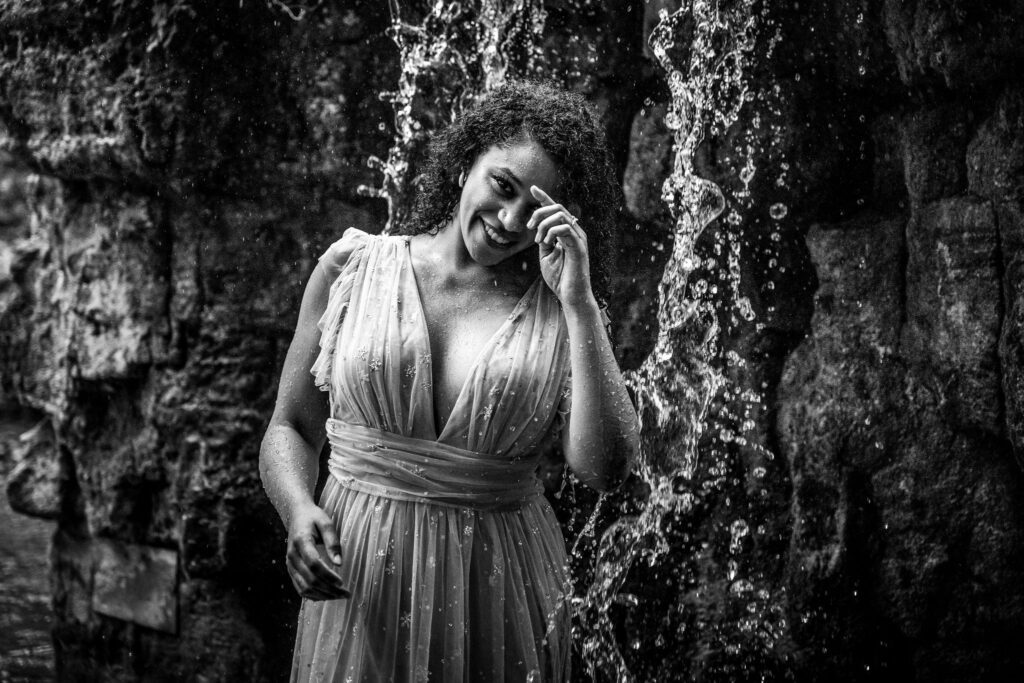
Sears has always maintained a deep respect for the craft. Richard Lam, Sears’ fiancé and a fellow actor, has witnessed Sears’ dedication firsthand. “I’ve learned so much about being a better artist just from watching her work,” he said in an interview.
Moreover, Lam says Sears is “a very socially conscious and politically engaged person who’s really willing to put her thoughts and beliefs into action in a way that is very consistent and responsible.” Lam’s work focuses on “bringing transformative justice and mediation tools into the theatre,” and he says his fiancée has been a supportive partner.
“Making progress is a trickier task than we might have thought,” said Lam, “and so myself, Vanessa, and many other folks are trying to stick the landing of what’s been started and balance what’s needed to make the work happen and make it more equitable.”
In our discussion, Sears frequently made a point of mentioning her mentors — the teachers, directors, and other elders who have nurtured the early years of her career. These influences include her high school drama teacher, Alison McIvor, who helped her prepare for her Sheridan auditions and who still comes to her shows. Pat Hoelke, who recently passed away, was a community piano teacher who encouraged Sears to audition for Beauty and the Beast at Streetlight Theatre Company. When she booked the role of Belle, Hoelke drove Sears to her rehearsals in the next town over.
Sears credits Jerry Mitchell and Kinky Boots with teaching her the “standard of professionalism” for big-budget productions, a lesson that served her well when she eventually made her Broadway debut as the understudy for Francie Evans in New York, New York. For that project, Sears had the opportunity to sing for John Kander, Susan Stroman, and Lin-Manuel Miranda, key creatives behind the show, which ran for 33 previews and 110 regular performances in 2023.
You can probably look at my resume, and pretty much anyone involved in any of those projects, I owe a debt of gratitude.
Vanessa Sears
“New York, New York was exactly the kind of show I would have dreamed of for making my Broadway debut,” she recalled happily.
She’s also grateful to Philip Akin, who was instrumental to her career as the director of Passing Strange with Musical Stage Company and Obsidian Theatre Company in 2017. Sears says that show marked “the first time I was in an all-Black cast, which was mind-blowing.”
The starry list of mentors goes on. ”You can probably look at my resume, and pretty much anyone involved in any of those projects, I owe a debt of gratitude,” joked Sears.
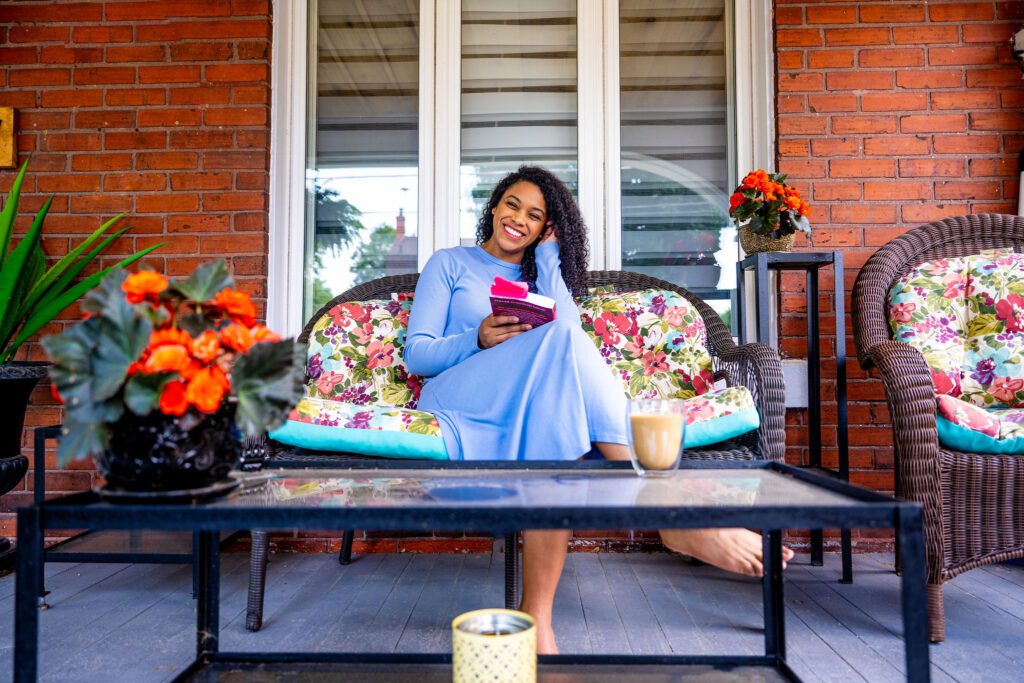
Currently, Sears is back at the Stratford Festival for an inestimable season, playing Juliet in Romeo and Juliet and Olivia in Twelfth Night, as well as being an understudy for London Assurance. There was a time in Sears’ career when she wasn’t sure she would get that kind of chance — until, in 2022, she had the opportunity to play Regan in King Lear at Soulpepper Theatre.
“As a Sheridan grad,” said Sears, “who’d done only musical theatre, I don’t think people knew that I was interested in plays, let alone Shakespeare — much less that I might actually be good at it.
“Doing only plays in 2022 shifted how I was perceived by people in the industry,” she continued.
The general mindset is shifting… we’re much more interested in equitable practices and hiring someone who can connect with a role and is the best at sharing that story.
Vanessa Sears
Despite being a Dora and Toronto Theatre Critics’ Award-winning actor with numerous credits and accolades, Sears has experienced her share of racism in the industry. As part of #inthedressingroom, a 2020 Twitter hashtag in which Black theatre artists shared their experiences of racism in Canadian theatre, Sears shared that while promoting a show, she was once told by a reporter she shouldn’t have gotten her role because she was Black. Sears says she experienced a lot of inner turmoil at the time, but concedes she’d react very differently now: with “grace for who I was and where the industry was,” she confided.
Thankfully for Sears, “the general mindset is shifting… we’re much more interested in equitable practices and hiring someone who can connect with a role and is the best at sharing that story,” thus “reinvigorating stories we’ve known forever with new perspectives. Because when you open up casting, you actually open up the character.” Otherwise, says Sears, “if you want to see exactly the same performance, put on a movie.”
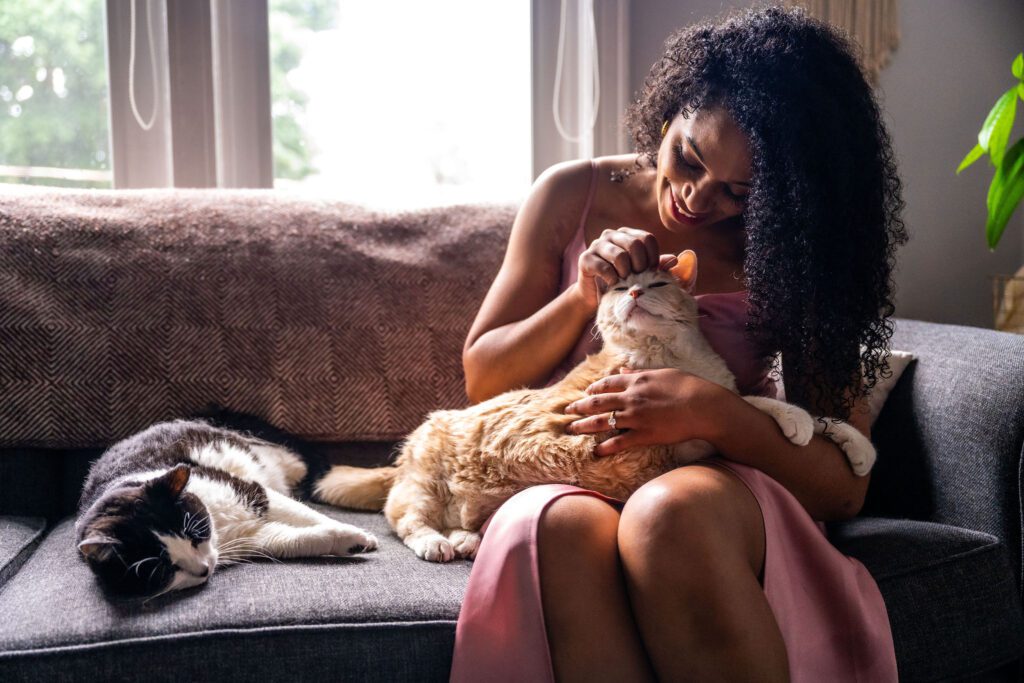
Unsurprisingly, there’s still backlash around casting Black women in the role of Juliet, such as on London’s West End. In Canada, Nikki M. James, a Black woman, played Juliet for the first time at Stratford in 2008. Sears is the company’s second Black Juliet.
With respect to playing Juliet, Sears said, “I keep getting more and more grounded and finding new twists, turns, and discoveries inside of it,” adding that she feels a bond with the character. “Getting to do [the role] and Shakespeare is an endless pursuit.”
In an interview with Intermission, Detroit-based Romeo and Juliet director Sam White ruminated on being the first Black artist to direct Romeo and Juliet at the Stratford Festival, sharing that despite it being the fifth time she’s directed the play, she “worried about critics… who are used to Shakespeare in a certain way.”
When Vanessa came in to audition, I just thought: She can really act her face off. It was obvious to me the minute she opened her mouth that she was Juliet.
Director Sam White
“My Shakespeare is based on real-life Verona, because Detroit was like Verona back in the 90s and early 2000s — very violent, visceral, and in-your-face,” said White. “This show has that energy, and it’s also filled with people of colour.”
Sears says she was excited to see a Black woman direct the production, and to hear that White “really valued community and vulnerability” and creating a safe space “to go to the dangerous places in the work.”
That feeling of respect was mutual. “When Vanessa came in to audition,” White recalled, “I just thought: She can really act her face off. It was obvious to me the minute she opened her mouth that she was Juliet.“
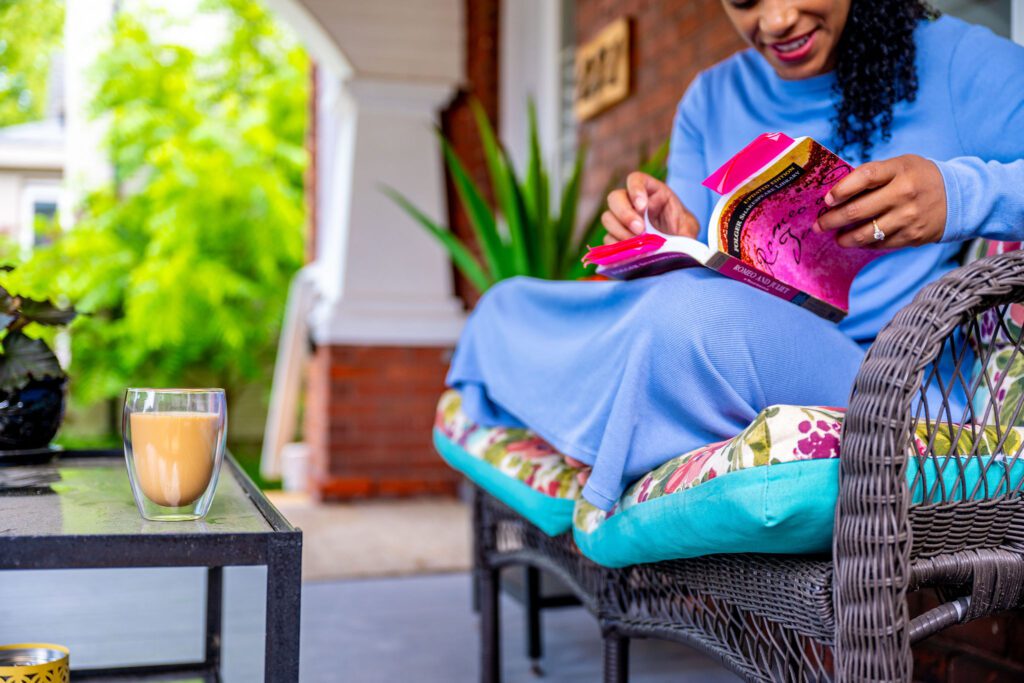
Speaking on their shared identity as Black women, White shared, “Vanessa and I have never had a conversation about her Being black or me being Black. We’ve never discussed it. We just both showed up and went, ‘Let’s be excellent.’”
Though Juliet is a beefy, complex role by itself, Sears also plays Olivia in Twelfth Night, which comes with nuances of its own. Sears says playing both roles is “a brain workout,” a challenge specific to the constraints of repertory theatre like Stratford’s.
Sears recognizes that despite the racism she’s experienced, she’s also been privileged. “The doors were already cracked open for me,” she said, “and I am someone who gets to continue shoving them open, making sure the doorway is wide open for the next crew.”
When Ray Hogg, artistic director of Musical Stage Company and founder of Prime Mover Theatre Company, along with a team of artists, set out to create the Legacy Fellowship, they were looking for marginalized artists in Canadian theatre with potential longevity in the field. In a phone interview, Hogg confirmed that Sears was chosen as one of the inaugural fellows in 2020 “because she manages to raise everybody up in her orbit.”
The doors were already cracked open for me, and I am someone who gets to continue shoving them open, making sure the doorway is wide open for the next crew.
Vanessa Sears
“Vanessa had a really strong vision for herself artistically,” said Hogg. “The fellowship is interested in artists who also pay it forward, and are interested in being mentors, standing on the shoulders of artists who came before, but also offering up their shoulders as a platform to raise up other artists.” According to Hogg, Sears exemplifies those qualities.
Fiona Sauder, a former Legacy Fellow and artistic director of Bad Hats Theatre, wrote the book for Bad Hats’ Alice in Wonderland, which featured both Sears and Lam.
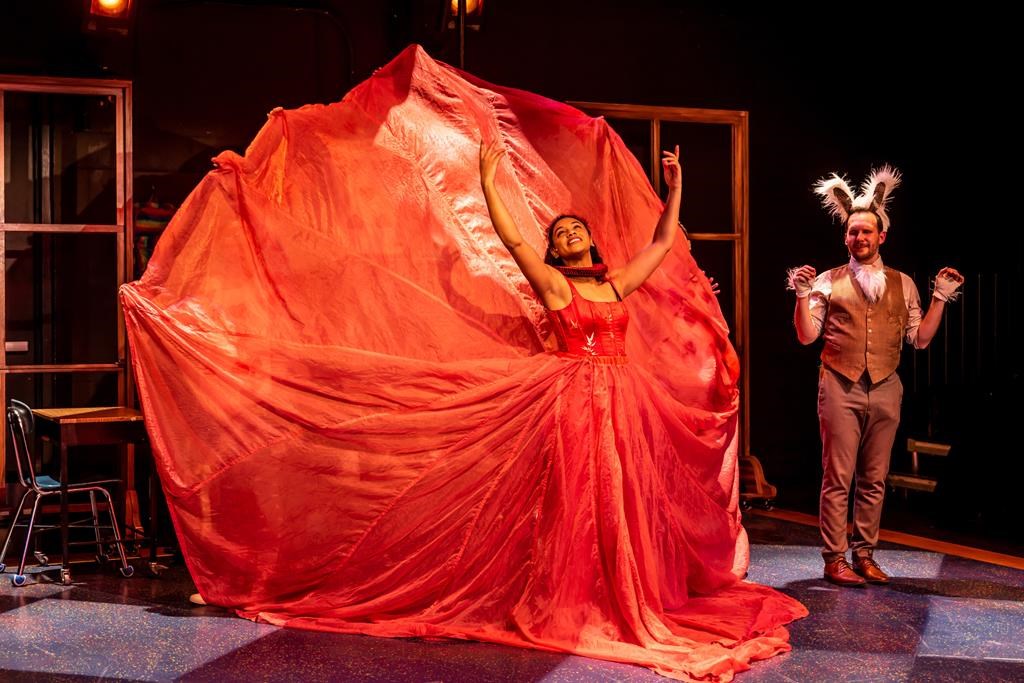
“It’s really a challenging and different exercise to meet a new show that’s in development,” said Sauder. “Alice changed a lot over the time that Vanessa spent with it, and we really shaped the role around and with her.
“It’s a really beautiful thing to watch an actor live with a role that’s changing alongside them… her fingerprints are all over that show,” Sauder continued. “As a writer, it was a real deep honour to get to build something with her in mind, and then watch her absolutely smash it.”
According to Sauder, “a lot of the threads” discussed during Sears’ and Sauders’ apprenticeships at Musical Stage Company “mirrored what we were working on and talking about in Alice: In order to survive as a woman with ideas or just a woman with any identity, you’re constantly confronted with messaging that tells you there is a right way to do it.
“And certainly, it adds layers when you put a person of colour in that role,” she continued.
If I want to be the most expansive, detailed, versatile artist I can be, the only way to do that is to keep learning, questioning, exploring, and working.
Vanessa Sears
Even after the trail she’s blazed so far, Sears says she’s reached a point where she feels a more complete sense of agency in her career. “I want to gift that to others and invite other people into the room to play,” she said. Lately, Sears has turned toward directing as a new chapter in her artistic journey, and will direct Perfect on Paper at Talk is Free Theatre in early 2025.
Though “people still absolutely have old ideas and feelings” about female leadership or a Black woman’s place on the stage, Sears says she’s “just not interested.”
“If that’s not where the open doors are, then I will go elsewhere,” she shared.
“If I want to be the most expansive, detailed, versatile artist I can be, the only way to do that is to keep learning, questioning, exploring, and working.”
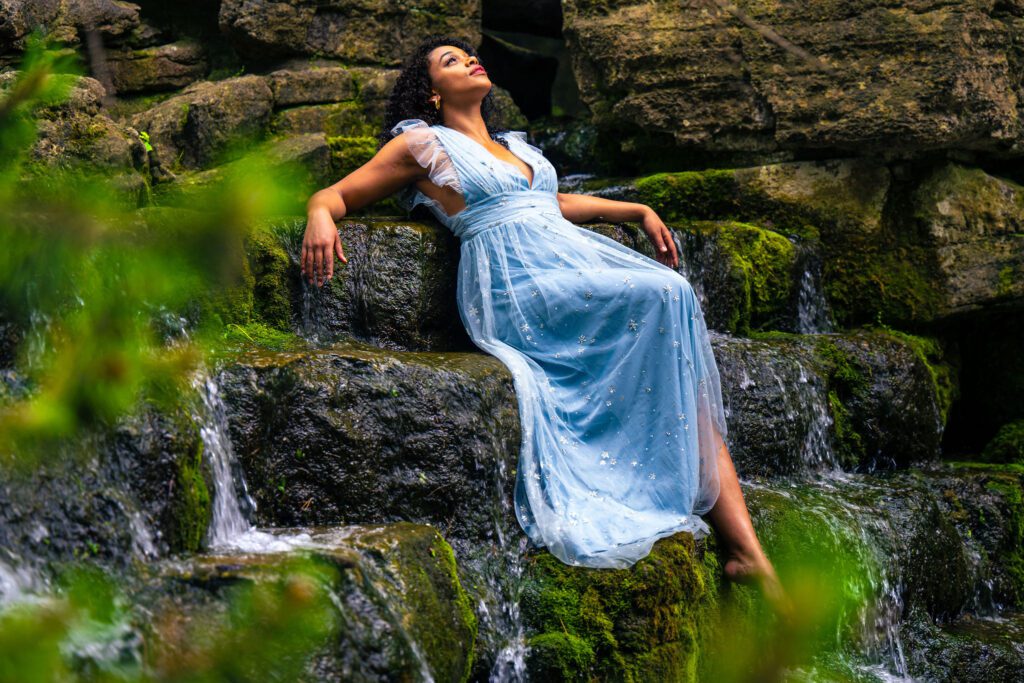


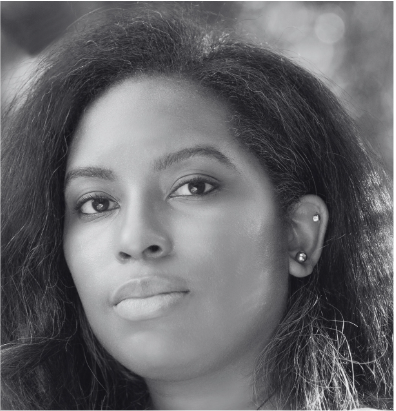
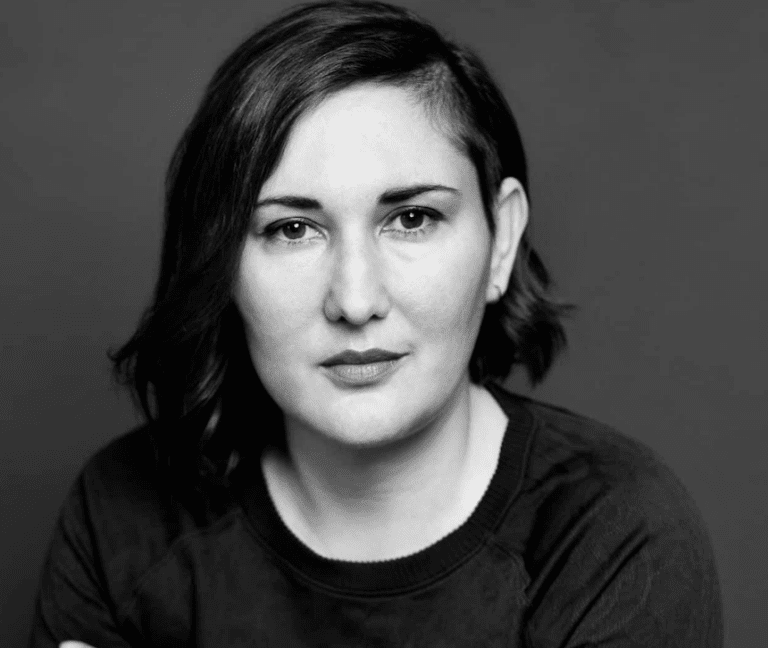



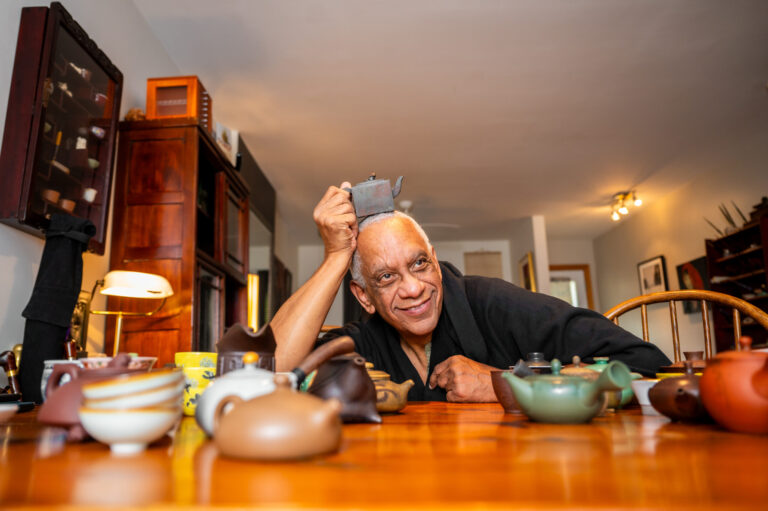
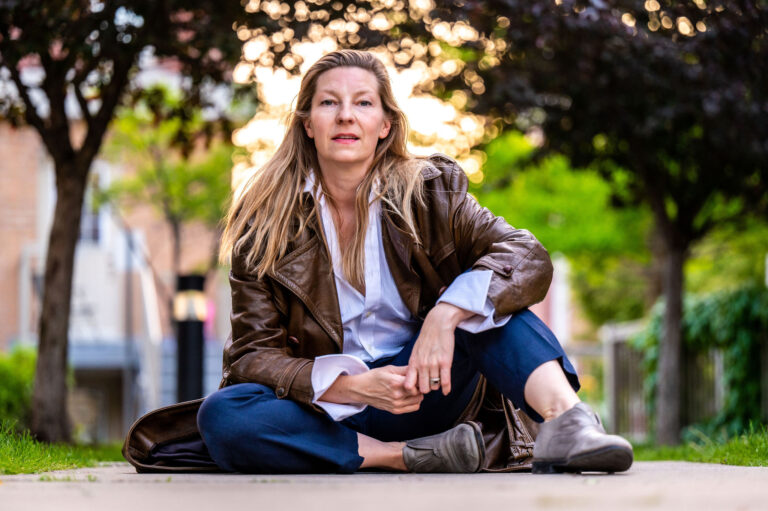
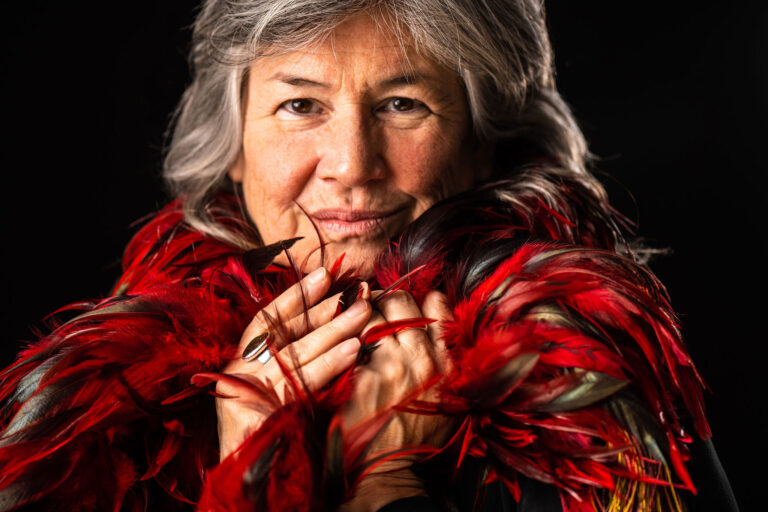
Another grreat profile… can’t wait to see Vanessa Sears’ 2 Shakespeares and Yvette Nolan’s show! When are you going to talk to someone in the first Asian-led show in the history of the Stratford Festival, Salesman In China?
You go girl